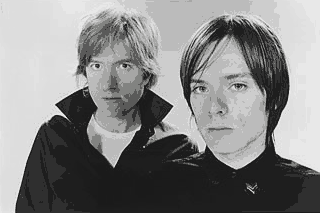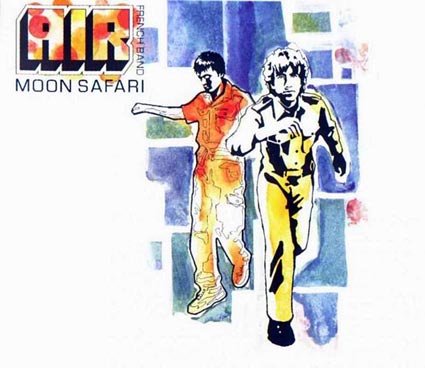Part of the Thoughts on the Apple TV Series
- Thoughts on the Apple TV: Hard Drive Perils
- Thoughts on the Apple TV: Format Woes
- Thoughts on the Apple TV: A Possible Alternative

So the much-anticipated Apple TV has shipped and, of course, the extreme early adopters are having a field day tearing the thing apart to find out what it can do. Some clever folks have already been able to install larger hard drives, more video codecs, and even the full version of Mac OS X, rendering what Cult of Mac calls a “Mac Nano.”
To be sure, it looks like an impressive device. But I probably won’t be buying one for two principal reasons, neither of which is the fact that I don’t have an HDTV set.
Reason 1: The perils of hard disk storage
Having been a participant in the digital media revolution for 10 years, I see some parallels between the state of video today and the state of audio in the late 90s. A decade ago, you were lucky if you had more than 10 GB of internal storage in your computer. With the overhead of operating systems and applications, there was a limited amount of storage on that drive for the MP3 scene’s early adopters. Even at just 3 MB per song, that drive would fill up fast. An external drive would cost you $300-400 for 6 GB of space, but that too would fill up before too long. At the time, one solution was the small, but growing market for writable CDs, which cost about $2 for a single 650 MB disk (in addition to the several hundred dollars for the 2X burner itself).
Similarly, while storage conditions have kept pace with growing file sizes, today’s digital video market faces some of the same logistical hard disk challenges for the end user. Apple’s own estimates say that a 45-minute TV show will run you 200 MB and a full-length movie is 1.0-1.5 GB. A modest collection of 100 movies will cost you 100-150 GB of hard disk space. Add to it complete TV seasons and expect that to grow substantially. Using Apple’s numbers, the entirety of the Star Trek franchise would use ~155 GB of disk storage.
To be sure, today’s hard drives are indeed up to the task of holding a large video library. 500GB disks can be had for less than $200, ensuring plenty of room for an expanding selection of movies. But whether you encode videos yourself or buy from the iTunes Store, that library will represent a hefty investment of time and money. And the most dreaded event in computerdom can wipe it all out in an instant: a hard drive crash.
Any reasonable, non-risk-taking person is going to want to implement (and practice) a regular backup plan for their media. The most convenient choices are to purchase a second (and possibly third) drive to house copies of all the video files, or make regular trips to the DVD-R burner for offline backups. The hard drive option would offer nearly instantaneous recovery to an iTunes+AppleTV-based media system, but it would double (or triple) your upfront costs. Additionally, if and when one of those drives fails, it will have to be replaced at the current market price for hard drives.
True, the arguments I made in defense of digital music can apply to digital video as well. But, for the present, there’s a matter of scale which makes the effort more cumbersome for video. Plus, a music library containing a large number of songs with short playing times benefits more from the instant accessibility and portability of the iTunes+iPod model than a video library with relatively few entries and long playing times.
Thus, for me, the more appealing scenario for personal digital video is that of the burned DVD because, with the right DVD player, your “backups” can double as working copies. Thankfully, it’s also much, much cheaper per megabyte than CDs were 10 years ago.
Which brings me to:
Reason 2: Incompatible video formats.




